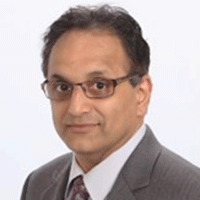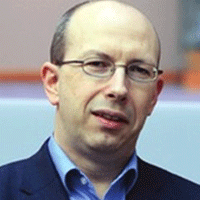Abstract: In electronics manufacturing, advanced package sits across the complex, evolving boundary between monolithic semiconductor dies and the system assembly of the final functional electronic solution. This leads to an almost bewildering interaction between ever-changing packaging technologies and multiple applications with diverse requirements. Technology roadmapping is a must, for guiding electronics manufacturing stakeholders.
In this session, Dr. Francis Mullany, iNEMI's Director of Roadmapping will share some insights into cross-industry technology roadmapping and its role in advanced packaging. Both iNEMI's approach and how it relates to other roadmapping efforts will be briefly discussed.
Following this, we will have a brainstorming session to capture the main drivers—both pull factors from the applications and the push factors from advanced packaging technology—and the trends in those drivers.

Dr. Shekhar Chandrashekhar
CEO, iNEMI
Shekhar Chandrashekhar has over 30 years' experience as a leader, strategist, and innovator with a history of driving improvements that streamline operations, drive growth and increase profitability on a global scale. His background in business and technology leadership, and his deep knowledge and advanced training in engineering management, have provided him with a unique talent—the ability to transform organizations, influence product positioning and drive a laser focus on priorities that support the company's vision and goals.
Prior to joining iNEMI, Shekhar was responsible for managing the national network of Smart Manufacturing Innovation Centers (SMICs) for the Clean Energy & Smart Manufacturing Institute (CESMII). In this role, he worked with the SMICs to demonstrate the value of deploying Industry 4.0 solutions to the manufacturing industry. Similarly, with California Manufacturing Technology Consulting, he oversaw the implementation of Industry 4.0 and digital technology solutions, building a network of systems integrators that impacted more than 35,000 small and medium sized manufacturers in California in their deployment of smart manufacturing solutions.
He has also worked with the American Society of Mechanical Engineers (ASME) as managing director, programs, for the association’s executive leadership team. In that role, he led business strategy development and created a program portfolio focused on workforce and global development. He helped influence the global engineering community by constructing and implementing content strategies to drive quality, innovation and revenue growth.
Shekhar began his career as a member of technical staff of AT&T Bell Labs and held several management positions with Bell Labs/Lucent Technologies/Alcatel-Lucent, including senior manager for the Network Solutions Group and Bell Labs/Supply Chain Networks. He eventually became director of the company’s CTO Group, where he created the footprint for Global Engineering Centers and optimized supply chain and operations for 20 business divisions in 40 countries.
He received the Advanced Technology Excellence Award from Bell Laboratories and the Outstanding Young Manufacturing Engineer Award from SME. He is a member of the editorial board for the International Journal of Concurrent Engineering Research and Applications and has published over 25 papers in international journals and conferences.
Shekhar has a Ph.D. in Mechanical Engineering from Concordia University (Montreal, Canada) and a Bachelor of Technology degree in Mechanical Engineering from the Indian Institute of Technology (Mumbai).

Dr. Francis Mullany
Director of Roadmapping, iNEMI
Dr. Francis (Frank) Mullany came to iNEMI from a long career at Nokia Bell Labs, where he was most recently a research strategist in Bell Labs Research, working with lead researchers to define roadmaps, research strategy and technology marketing. His 20 years of managerial and technical experience spans a broad range of wireless and networking technologies, from RF hardware to network slicing, and from real-time machine-learning inference engines to end-to-end orchestration.
Frank joined Bell Labs in 1998, first with the Wireless Research Laboratory in the UK and then he helped establish Bell Labs Ireland in Dublin in 2004. He built up and led the RF Antennas and Front-End Technologies department focusing on novel RF technologies and hardware.
In 2013, Frank established Bell Labs' Internet of Things research program before moving to the CTO organization to lead the Network Compliance, Reliability, Security and Corporate Standards organization. In 2015, he returned to Bell Labs Research to take up a research strategy role.
Frank was Alcatel-Lucent's representative on EPoSS, the European smart system industry association, and was the editor for the telecommunications section of the EPoSS Strategic Research Agenda. He received B.E. and Ph.D. degrees in Electronic Engineering from University College Dublin, National University of Ireland.